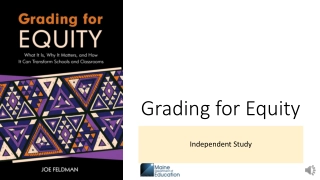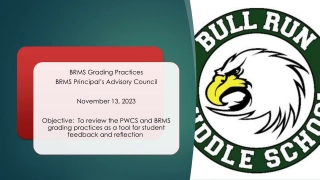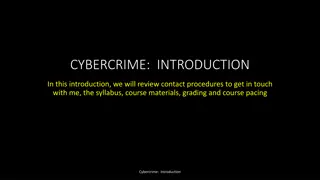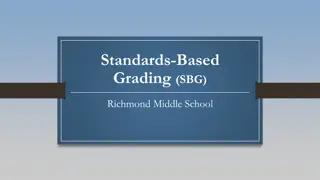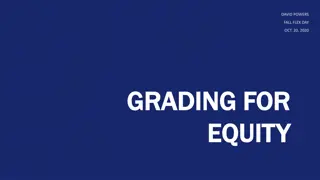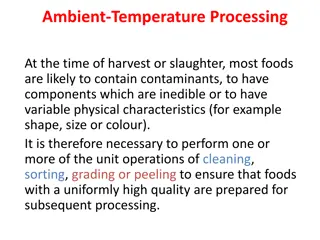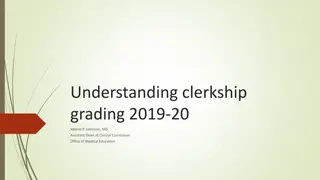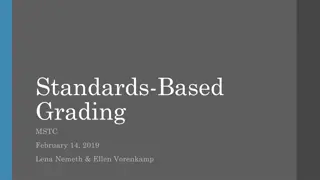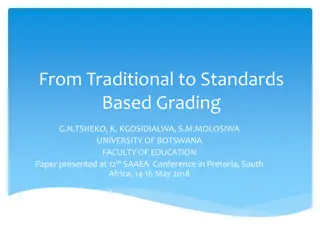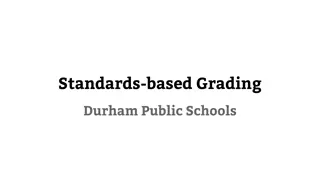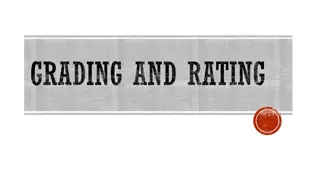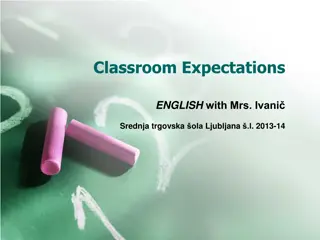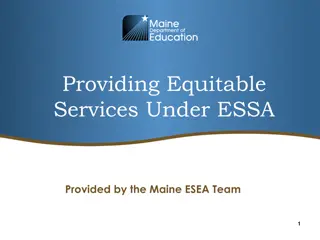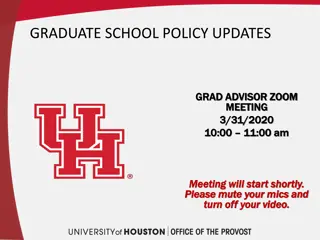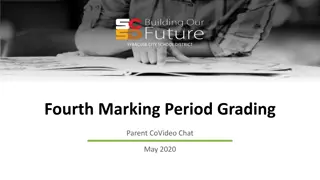Equitable Grading Practices for Improved Learning and Relationships
There is a near consensus among researchers, teachers, and students that equitable grading practices improve learning, decrease failure rates, and strengthen relationships. This journey of self-reflection and learning has led to the development of a building grading philosophy and the formation of an Equitable Grading Task Force based on Joe Feldman's book "Grading for Equity."
Download Presentation

Please find below an Image/Link to download the presentation.
The content on the website is provided AS IS for your information and personal use only. It may not be sold, licensed, or shared on other websites without obtaining consent from the author.If you encounter any issues during the download, it is possible that the publisher has removed the file from their server.
You are allowed to download the files provided on this website for personal or commercial use, subject to the condition that they are used lawfully. All files are the property of their respective owners.
The content on the website is provided AS IS for your information and personal use only. It may not be sold, licensed, or shared on other websites without obtaining consent from the author.
E N D
Presentation Transcript
There is a near consensus among researchers, teachers who I have worked with, and their students that the equitable grading practices in this book improve learning, decrease failure rates and grade inflation, make classrooms more caring and less stressful, strengthen relationships between teachers and students, and build students responsibility and character. -Joe Feldman, Grading for Equity, page 12
A Lot of Self-Reflecting & Learning Opening Day Staff Survey about why we grade the way we do and the purpose of grades. We began to look at SHS grade related data. 2016 2016-17 TL Engaged in Book Study of Grading Smarter, Not Harder , and began trying a lot of new grading practices 2017-18 TL and Teachers had the opportunity to attend PD by Rick Wormeli and more teachers engaged in pilots 2018-19 October Conference Day: TL PD on Grading An effort category was added to the report card, modeled after Elementary School language. Jan. 2019: Committee decided to move from Val/Sal to Cum Laude and Magna Cum Laude (begins with 2022 graduating class). March 2019: SHS teachers voted to adopt a building grading philosophy effective the following school year. Simultaneously, we have also been engaging in self- reflecting and learning around CRE/SEL 2019-20 Multiple PD sessions led related to Grading Smarter, Not Harder 2020-21 Global Pandemic Clause 2021-22 Equitable Grading
Equitable Grading Task Force A variety of ~25 stakeholders 3 full days during 21-22 school year. Based in the book: Grading for Equity by Joe Feldman
Looking Forward Homework Video College Admissions Video-Megan Sarkis Logistics of Infinite Campus & Grade Reporting Video Incompletes Ungraded Category


